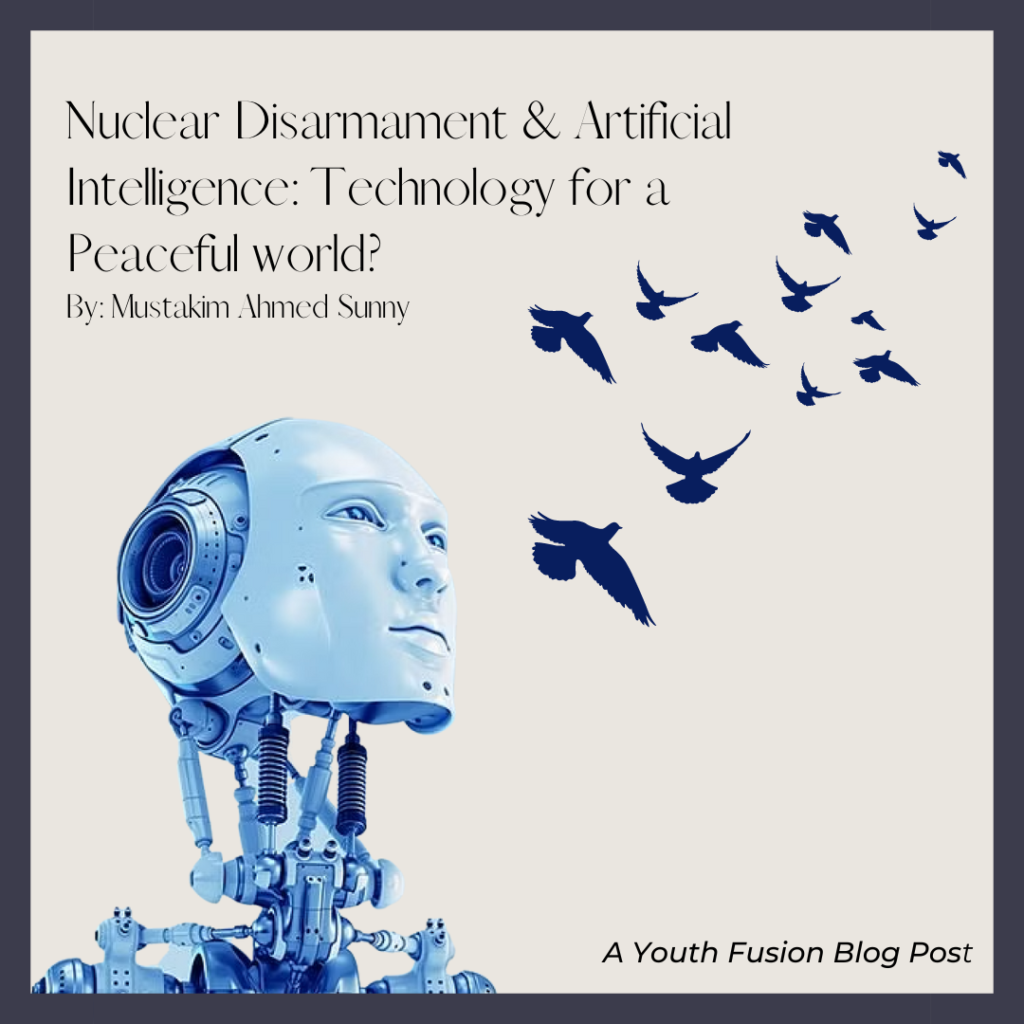Since the first atomic bombs were dropped on the Japanese cities of Hiroshima and Nagasaki in 1945, the potential use of nuclear weapons has posed a continuing threat to humanity. Despite the efforts of the international community, the world still has a large number of nuclear weapons. Therefore, the threat of their use continues to constitute a serious challenge to international peace and stability. The role of artificial intelligence (AI) in strengthening nuclear weapons non-proliferation and disarmament activities has grown in importance as a result of this persistent danger, which this article sets out to explore.
Nuclear disarmament is the process of lowering and, ultimately, getting rid of all nuclear weapons world-wide. This procedure aims to lessen the possibility of nuclear conflict, curtail the damage from a nuclear disaster, and advance global peace and stability. The signing of international treaties like the Comprehensive Nuclear-Test-Ban Treaty(CTBT) and the Treaty on the Non-Proliferation of Nuclear Weapons (NPT) are only some of the numerous actions that have been taken to accomplish this aim.
Despite these efforts, progress in reducing the number of nuclear weapons has been slow, and the continued development of new nuclear technologies only adds to the urgency of the situation. This is where AI comes in. Artificial intelligence has the potential to play a crucial role in aiding non-proliferation and disarmament activities, such as through providing new ways to monitor, detect, and deter their production, testing and use.
The detection and monitoring of nuclear testing is one of the primary ways AI may be used to decrease the risk for potential nuclear weapons use. Seismographic and hydroacoustic data, which are used in conventional techniques to detect nuclear testing, might be limited by environmental factors, including weather and ocean conditions. The massive volumes of data that AI can evaluate in real-time, on the other hand, allows it to provide more accurate and fast intelligence on impending nuclear testing.
The avoidance of nuclear accidents is another area where AI may be applied. Nuclear accidents can have terrible consequences, both in terms of loss of life and harm to the environment. Real-time monitoring of nuclear power plants, using artificial intelligence (AI), enables the taking of preventative steps by giving early indication of probable mishaps. For instance, using AI to evaluate data from temperature sensors, radiation sensors, and other monitoring equipment may be used to spot possible accidents early on and trigger an alarm.
The promotion of global peace and stability may also be accomplished with the help of AI. AI can assist to prevent the use of nuclear weapons through encouraging transparency in their development and deployment by giving real-time data on the activities of nuclear weapon-possessing nations. This might serve to ease tensions between nations and encourage stability in conflict-prone areas.
Notably, though AI demonstrates great potential to be used for peaceful purposes and aid the nuclear disarmament agenda, it can also be used for harm. One of the potential adverse consequences of AI on nuclear disarmament is the possibility that deepfake technology may be used to pose as leaders of nuclear-armed states and incite nuclear war. Deepfake technology makes convincing fake films and audio recordings using machine learning algorithms, which might be used to propagate false information and stir up conflict. This may cause nations to lose faith in one another and raise the risk of nuclear conflict. As AI develops, it will be crucial to address these concerns and create safeguards to make sure that this technology is applied responsibly and for the betterment of everybody.
In summary, the continued threat posed by nuclear weapons – their production, development, stockpiling and use – to international peace and stability is further increased by the urgency of the issue as new technologies are developed. To limit the potential use of these weapons, whether intentional or accidental, and advance global peace and stability, artificial intelligence may be used to its full potential. It will be crucial, however, to make sure we develop and employ AI’s positive potential towards strengthening the conditions for peace and security, and not its negative potential to undermine such conditions.
By:
Mustakim Ahmed Ahmed Sunny
Advisor, Parliamentarians for Nuclear Non-Proliferation & Disarmament (PNND),
Bangladesh

